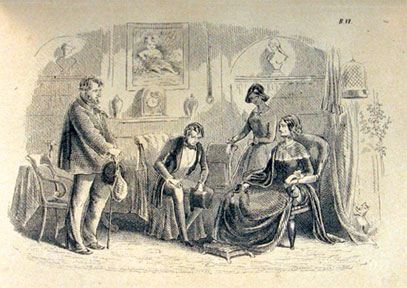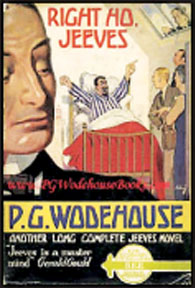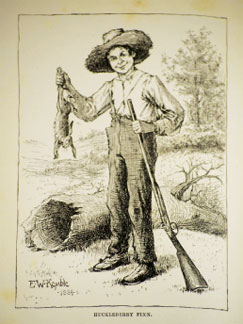Unforgettable quirky characters
by Shireen SENADHIRA
 Wilfred, a friend of long standing, a
widower, was a real sport who lived alone as his children were abroad. I
did tell him often: “Well, Wills, Kathleen is willing.” “So?” pat came
his reply. “Are you?” Knowing well what I was alluding to, he replied,
“I certainly am not.” “What a pity! Could you take some time to
consider?” “No, not at all.” “Oh! but Wills, Barkis was willing for a
long time and Peggoty agreed in the end. “Good for Barkis.“ The
conversation stopped till the next time. Wilfred, a friend of long standing, a
widower, was a real sport who lived alone as his children were abroad. I
did tell him often: “Well, Wills, Kathleen is willing.” “So?” pat came
his reply. “Are you?” Knowing well what I was alluding to, he replied,
“I certainly am not.” “What a pity! Could you take some time to
consider?” “No, not at all.” “Oh! but Wills, Barkis was willing for a
long time and Peggoty agreed in the end. “Good for Barkis.“ The
conversation stopped till the next time.
Barkis and Mr Dick
Every time after such a conversation, I did think of Barkis, the old
and sturdy carter in Charles Dickens’s novel David Copperfield. It was
Barkis, who sent so many messages through little David to Peggoty, the
cook. Peggoty never gave Barkis an answer. It was much later that
Peggoty did marry Barkis and they lived in Yarmouth, as the story goes.
Though Barkis was a man who did not approach a subject directly but
in around about way, he was very loyal and dependable. In fact, the
story says, Barkis left Peggoty, her family and even David some money at
his death. He had left a princely sum of 3000 sterling pounds. When
Dickens serialised the story of David Copperfield in a monthly magazine
from May 1849 to November 1850, this tidy sum was an immense amount of
money.
Another unforgettable character is Mr Micawber, in the same novel
David Copperfield. Micawber, a Londoner became a friend of David.
Micawber was so optimistic in his outlook in life, that he endeared
himself to us and we are thankful to him. It is mostly complaints,
groans and moans we hear daily nowadays, which is partly due to the
precarious times we live in. Therefore, it’s such a refreshing breeze
that blows on us when we meet with Micawbian characters.
This reminds me so much of our friend Max. Max was full of news, when
we met him which was often, he would tell us the bad news first and when
we go quiet and pondering on it, he would give us the good news. Then
after our discussion he rounds it all up saying : “Anyway, looking at it
( whatever the situation) brightly, it will end up ok.” The fun part of
meeting max was the paradox he created most times.
 Micawber, however, waited eagerly and believed wholly in his
favourite saying “something will turn up.” He was an incredibly eloquent
and well spoken man but utterly helpless in managing money. Thus, he
fails his family, gets so much into debt and gets landed in prison. His
kindness towards other people is rewarded in the end. Later in the
story, David, his friend Traddles and Aunt Betsey club together to buy
Micawber and family tickets to Australia. There, the Micawbers achieve
their dreams and are successful. Micawber, however, waited eagerly and believed wholly in his
favourite saying “something will turn up.” He was an incredibly eloquent
and well spoken man but utterly helpless in managing money. Thus, he
fails his family, gets so much into debt and gets landed in prison. His
kindness towards other people is rewarded in the end. Later in the
story, David, his friend Traddles and Aunt Betsey club together to buy
Micawber and family tickets to Australia. There, the Micawbers achieve
their dreams and are successful.
In the same novel, another endearing person is Mr Dick. He is an
older man living with Miss Betsey, David Copperfield’s aunt in her
cottage in Dover. When Mr Dick’s brother refused to look after Mr Dick,
Miss Betsey rescued him and became his guardian. Mr Dick is a
simple-minded person who flies kites in the strong winds of Dover. When
David arrives at his aunt’s door unexpectedly, Miss Betsey is nonplussed
for the moment and she asks Mr Dick what to do with the boy? Mr Dick
gives a very practical answer, “give him a bath.”
That is exactly what happened in the story and all was well. Later,
as the story unravels, all three of them became great friends.
This is a real life situation and thank goodness there are Miss
Betseys still around in the world who are able and do take care of a lot
of people in need.
Miss Havisham
I remember, a long time ago in Galle, there was an old woman in a
large house with a garden. She was unmarried and lived alone with only
her servants. What struck me was that she was always well dressed
whether it be morning, or evening. I never even saw her stepping into
her beautiful garden. I didn’t know her story, perhaps she was waiting
like Miss Havisham. But, I must say, that the Galle woman was very kind
and smiling and entertained us with delectable food and drink quite
unlike Miss Havisham. The latter was a very peculiar character who was
trying her larks through little Estella like getting Estella to be cruel
to Pip.
Miss Havisham in Charles Dickens’ Novel Great Expectations is the
wealthy, eccentric old woman living in the manor called Satis house near
Pip’s village. She is manic and seemed insane walking around her house
in a faded wedding dress, keeping a decaying feast on her table and
surrounded by clocks that had stopped at twenty to nine. As a young
woman, Miss Havisham was jilted by her fiancé, minutes before her
wedding and she never stopped wanting her revenge against all men.
“She was dressed in rich materials – satin, lace and silk of all
white. Her shoes were white. And she had a long white dependent from her
hair, and she had long bridal flowers in her hair.” This quotation from
the book shows the way Miss Havisham dwells on the past and also shows
how expensive the materials she had on her wedding day were. Miss
Havisham had only one shoe on because when she learned of her fiance’s
betrayal she had not yet put on the other shoe. This shows she’s really
wonky and that the event had a very big impact on her life which has
stopped her moving on in life. Instead, she has sunk into despair and
depression.
Even though she is sad and lonely, she is very rich. She has a very
large house and a maid called Estella. She invited Pip into her house to
watch him play and she asks Estella to break Pip’s heart as she seeks
vengeance. Another reason for inviting Pip to play is to see him happy.
This is because she is so forlorn she can’t be happy herself and she
needs to see someone else happy to try and recover memories before her
wedding day.
Miss Havisham is a listless person who won’t allow herself to forget
the past and has hate dwelling in her heart. Towards the end, Estella,
Pip and herself are hurt by her actions and suffer greatly but old
Havisham is redeemed when she realises that all the pain she has caused
in revenge has only caused more pain. Havisham then immediately begs Pip
for forgiveness, enforcing the fact that bad behavior can only be
redeemed by repentance, sympathy and kindness to another.
Jeeves
 Getting on to more lovable characters, Jeeves and Bertie Wooster in P
G Wodehouse novels of this series of man and master situation is
amusing, delightful and satisfying. This pair who share the same
quarters do care for each other – Jeeves, with a manservant’s devotion
to his master and Wooster with his family’s money could be called a
match made in heaven if it weren’t for the fact that it was a creation
of P G Wodehouse. Getting on to more lovable characters, Jeeves and Bertie Wooster in P
G Wodehouse novels of this series of man and master situation is
amusing, delightful and satisfying. This pair who share the same
quarters do care for each other – Jeeves, with a manservant’s devotion
to his master and Wooster with his family’s money could be called a
match made in heaven if it weren’t for the fact that it was a creation
of P G Wodehouse.
While Jeeves and Wooster are perfectly understandable to the English,
they often appear to defy the laws of social gravity in the modern
world. Jeeves, with his mannered reserve and calm rationality takes
charge of Wooster who is always impetuous and bungles every situation.
The distance between the two men was created by class distinctions based
on a code of superiority of inherited status, wealth and education,
which dictated the behavior of the British for hundreds of years,
regardless of whether they were at home or on rubber and tea plantations
in Asia.
But any reader who worries too much about credibility misses the
point that the duo are good fun and their silly predicaments are
designed purely to entertain us so that we can set aside the irritations
and drawbacks of modern life and enjoy ourselves by delving into the
exploits of Jeeves and Wooster like delving into a delicious soufflé.
Andare and Mahadanamutta
Like many, we grew up with the stories of Andare and Mahadanamutta.
Andare served King Rajasingha as the court jester, story teller and the
King’s messenger. Andare could have been named Katandare as he was full
of innovative stories. Andare was a practical joker and played many
pranks in the royal court. The village women too were the butt end of
his jokes. One day the village maidens wanted to teach him a lesson and
they contrived a plan. They all went to bathe in a pond inviting Andare
too. In the water, they told Andare that they would all dive in and
bring up an egg from the waters. Andare knew they were trying to get
even with him and while he watched, they dived in and they all came up
with an egg in each of their hands. Sharp witted Andare too dived in and
came up and chortled “cock a doodle doo.” He smiling said,“all of you
are hens and I’m the only cock.” Just as much as he was jovial, he used
to mock and ridicule many. Once, he saw a young princess returning from
her bath at a pond. Remembering how she and her friends had mocked him,
he took his chance and said:
Kata kedi kale diya ukule thabagena Lota than dekak geri hamakin
vasagena Thambath piththalth devage pelandagena Rodi kella koi yanawada
udesena ? (Placing upon her hip a pot of water with a broken mouth;
covering haggard breasts with cattle skin; adorned with both copper and
brass; Rodi (low Caste) girl, where are you going?)
Princess
The princess in tears ran to the king and complained and the king
called for an inquiry. At the inquiry, crafty Andare seemed puzzled and
said that he uttered only the following verse:
Gana ran kale diya ukule thabagena Ran koombu dekak ran saluven
vasagena Menik rattaran devage pelandagena Malmada bisava kohi yanawada
udesena? (Placing a thick gold pot of water on her hip, covering two
full golden breasts with a golden shawl; adorned with both gems and
gold: Pretty young damsel where are you going this morning?)
Hearing this, the King dismissed the case as a misunderstood
incident. Andare’s quick wittedness got him out of many a scrape and he
managed to keep the king and court happy and amused very well.
Mahadanamuththa was another character that filled childhood days with
many tales. Mahadanamuththa was an old guru with five followers. They
got into absurd situations and trying to solve them bungled them
completely. These were comic stories with such simple plots that were
made ridiculously complicated by the six of them.The main theme of these
stories however, was the immense love that the guru and his followers
had for each other. His followers had such nonsensical names such as
Polbemuna (half a coconut face), Rabbadaiya ( Toddy belly), Kotukithaiya
(skeletal thin), Indikatu pancha (needle like)and Puwakbadilla ( like an
arecanut). Young children even now, coming across various people have a
tendency to liken them to one or the other of the above six characters.
This in good measure is the beginning of an animated conversation.
Huckleberry Finn
The American novel Tom Sawyer had a sequel which was entirely another
story, The Adventures of Huckleberry Finn. Mark Twain, the author of
both novels, took a new approach in the latter to expose the problems
which he saw in society then. Thus, he wrote the latter novel with the
beauty of using satire. Huckleberry Finn written in 1884 was a work of
humour as well as a serious social commentary. Twain used generous
amounts of humour but also showed man’s cruelty to man, religious
hypocrisy, romanticism and superstition.
This was done to amuse the reader and more importantly to make the
reader aware of the ‘ills’ of society at that time. Thus, through a
rough and mischievous little boy who caused much humour, Twain was able
to give his serious message which was subtle yet powerful to his
readers.
Characters such as Barkis and Micawber come up in our lives from one
day to another and then our minds revert to the characters in the books
we have read. We identify the real ones with the lovable ones in
literature about whom we have read avidly. Most times, we can relate to
many such people and place them exactly to a particular character in a
particular book. When we do so, it creates such a wholesome and glad
feeling and you look at the real characters quite differently. Actually,
it does sometimes, make your day.
These are the coincidences in life and it is also how nature talks to
us and gives us a message, if we have and take the time to ponder on it.
Anyhow, when this happens, it really lights up and brightens our whole
outlook over an otherwise mundane day.
|

